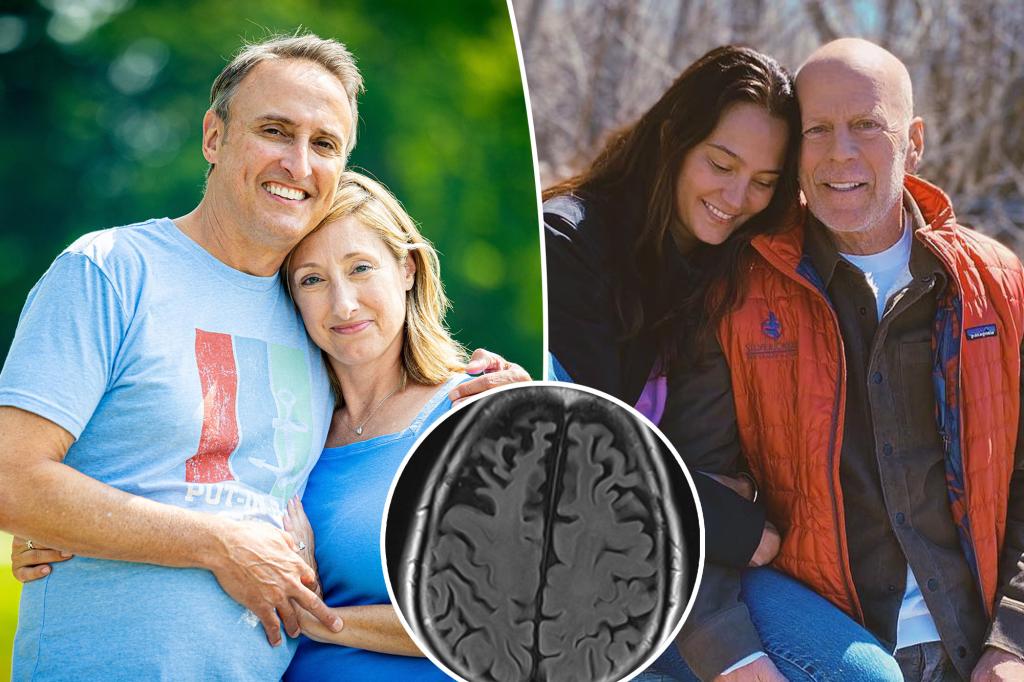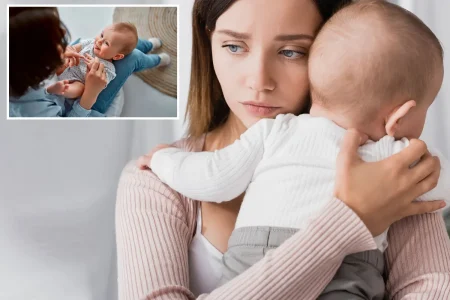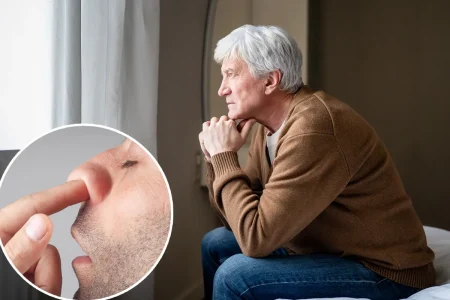Bruce Willis and His Wife Extend Support to Couple Facing Frontotemporal Dementia
In a powerful example of human connection through shared struggles, Emma Heming Willis, 47, has reached out to support an Ohio couple navigating the same devastating diagnosis that her husband, actor Bruce Willis, received in 2023. After watching Sean Durbin, 58, and his wife Lisa Ihnat-Durbin, 50, share their journey with frontotemporal dementia (FTD), Emma recognized the courage it takes to transform personal hardship into public advocacy. This connection has blossomed into a meaningful partnership aimed at increasing awareness about this progressive brain disease that affects language, behavior, and comprehension. The story of these two families linked by similar challenges reveals how celebrity health disclosures can create profound ripple effects, offering both validation and valuable reference points for others experiencing the same condition in relative obscurity. For Sean and Lisa, being able to say, “It’s the same thing Bruce Willis has,” has opened doors to greater understanding among their friends and family, creating pathways for education and empathy where confusion once prevailed.
Sean’s journey with FTD began with subtle but concerning changes last year when he was 57—noticeably younger than most dementia patients. “I noticed at times, like, I couldn’t quite get my words out,” Sean explained, describing how he once could “verbalize” himself easily but suddenly found words slipping away mid-sentence. These changes prompted his wife Lisa to encourage medical evaluations, which ultimately led to his diagnosis at Cleveland Clinic under the care of neurologist Dr. Jagan Pillai. FTD differs from Alzheimer’s disease in several key ways, including typically earlier onset and different patterns of brain degeneration, specifically affecting the frontal and temporal lobes. The diagnosis was both clarifying and devastating for the couple, forcing them to reimagine their future together. In these moments of personal crisis, the public discourse around Bruce Willis’s condition—announced in 2023 when the actor was 70—provided not just a frame of reference but also a sense of shared humanity in the face of a challenging diagnosis.
The parallels between these families extend beyond the medical diagnosis into the emotional landscape of adjusting to a new reality. “You have this sort of story in your mind of how your life is going to play out and then to see it completely ripped from you is just heartbreaking,” Emma shared in a video produced by Cleveland Clinic. “You have to sort of figure out your new chapter of your life.” This sentiment resonates deeply with Lisa, who has watched her husband struggle with a condition that gradually erodes the essence of who he has always been. Yet within this shared grief lies an unexpected gift—the opportunity to connect with others who truly understand. For both couples, the journey has highlighted the critical importance of education as a foundation for coping. As Emma noted, “When you educate yourself and understand the disease, you can better support yourself as well as your person.” This philosophy has guided both families toward advocacy, transforming their private pain into public purpose.
The collaboration between Cleveland Clinic, the Durbins, and Emma Heming Willis represents a powerful alliance in the fight against FTD. Research conducted by Dr. Pillai and his colleagues, published in Innovation in Aging, confirms what these families have experienced firsthand—that high-profile cases like Bruce Willis’s significantly improve public understanding of lesser-known conditions like FTD. This “celebrity effect” creates openings for broader education and awareness that benefit countless families facing similar diagnoses without the spotlight of fame. Their joint efforts focus not just on raising awareness but also on expanding access to resources specifically designed for younger families dealing with FTD, addressing the unique challenges that arise when dementia strikes decades earlier than expected. The partnership illustrates how medical institutions, patients, caregivers, and public figures can unite to address gaps in understanding and support for complex neurological conditions.
Though medical science has yet to develop effective treatments for FTD, early diagnosis remains crucial—not for cure but for preparation. Identifying the disease sooner provides families with precious time to plan ahead, access appropriate support services, and potentially participate in clinical trials that might benefit future patients. Most importantly, diagnosis helps patients and loved ones make sense of the confusing changes they’re experiencing, offering a framework for understanding behaviors and symptoms that might otherwise cause additional distress and conflict within families. For Sean and Lisa, this understanding has fostered resilience rather than resentment. “We had our wedding anniversary and he just said, ‘You know, I think we’re stronger than ever together,'” Lisa shared, highlighting how facing adversity has deepened their connection rather than diminished it. Their story, much like Emma and Bruce’s, demonstrates how even in the face of progressive cognitive decline, human relationships can grow in depth and meaning.
The journey of these two families connected by similar diagnoses illuminates the power of gratitude and honesty in confronting life-altering conditions. Despite the challenges they face, both couples have chosen to focus on making the most of their present circumstances while helping others. Lisa expressed this perspective beautifully: “I’m grateful every day that I have and every moment I have with Sean, and that hasn’t changed.” This sentiment reflects a profound truth about living with progressive illness—that awareness of life’s fragility can enhance our appreciation for what remains rather than solely focusing on what is lost. For Sean and Lisa, advocacy has become a meaningful way to transform their experience into something that benefits others, creating purpose from pain. “We’re aligned with the message of wanting to get the word out,” Lisa explained, acknowledging Emma’s contribution with gratitude: “Thank you for stepping into those shoes.” Their collective efforts remind us that even in our most vulnerable moments, human connection and shared purpose can be powerful sources of healing and hope, bridging the gap between celebrity and ordinary life through the universal language of compassion and understanding.















